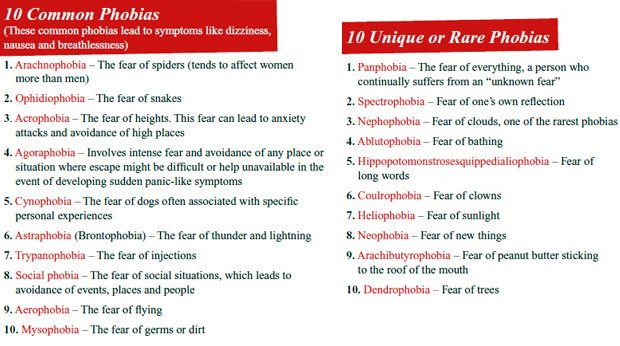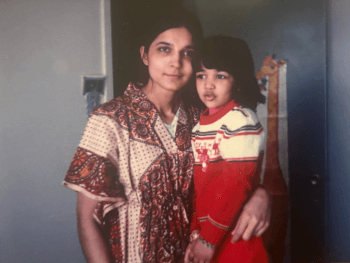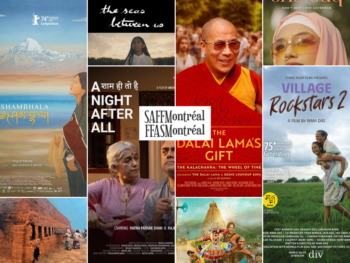
We go toe-to-toe with phobias and examine what lies beneath the fear.
I remember the first time I booked my first trip with an airline. I always imagined I would take it slow, a nice short trip – a one-hour flight, to be exact – to ease me into the thought of being 30,000 feet in the air. Somehow I ended up booking a trip to New Orleans; it was a three-hour flight and it wasn’t direct. Yes, it had to be the worst three hours of my life. My fear did not keep me from flying, but I was a bundle of nerves during that flight, especially when there was turbulence.
We are all forced to confront our fears at one point or another. Has your fear ever gotten the best of you? Did you ever miss out on an opportunity because of what “might” happen? Fear is a natural instinct – it helps us react to dangerous situations – but when it comes to a point where it affects your daily life, finding ways to manage or cope with a phobia could lead to a balanced lifestyle.
It is estimated that one in 10 people are affected by anxiety disorders, and phobias is one of them. They are often mistaken as a form of weakness or self-indulgence, and because of this, there is a stigma associated with the illness. “Phobias can be developed at all ages,” says Judith Chessa, a licensed master social worker at The Anxiety and Phobia Treatment Center at White Plains Hospital Center in White Plains, New York. “However, most commonly, they are developed between the ages of 18 and 28 as a result of anxiety and panic.”
How does a phobia develop?
There is not a single factor as to why phobias develop because there are many theories that contribute to the disorder. Research suggests genetic and environmental factors, along with family history, could possibly be a determining component. Other factors could be a traumatic event or a reaction by observing another’s anxious response.

There are two forms of phobias: specific phobias and social phobias. Specific phobias are believed to be a combination of biological factors and events. Phobias like fear of flying (aerophobia), heights (acrophobia) and blood (Hemophobia) are common, and theses fears usually consume the individual. Managing inappropriate and involuntary thoughts become difficult to navigate which leads to high anxiety resulting in avoidance of the object or situation.
Social phobia is broken down into two subcategories: one is associated with a specific event, such as public speaking at a boardroom meeting, or performing in front of a live audience (which would result in “stage fright”). This type of social phobia is more generalized and geared towards large social gatherings.
Are phobias curable or can they be managed?
“Some specific phobias can be “cured,” says Judith. “In most cases, we use the word “recovered.”
When asked about treatments for phobias, Lynn D. Miller, an associate professor at the University of British Columbia says, “You typically don’t see medication for this, so psychological management is the best way to manage it.” She explains, “It’s with a particular type of approach called cognitive behaviour therapy.”
Cognitive behaviour therapy (CBT) uses a technique called Exposure Therapy. “That’s like the active ingredient we say. If you are not doing exposure then you are probably not going to get over your specific phobia, because the plan is to get you gradually closer by exposing you to the feared event in your life.”
Medications can also be used in combination with cognitive behaviour therapy, but the Canadian Medical Association and Canadian Psychiatric Association has determined the first line of treatment should be CBT.
Phobia suffers can keep in mind there are other self-help therapies, that can be used and can seek comfort in knowing they are just like everyone else.

BY TESSA JOHNSON / PUBLISHED IN THE HEALTH & WELLNESS ISSUE, SUMMER 2012

















































































































